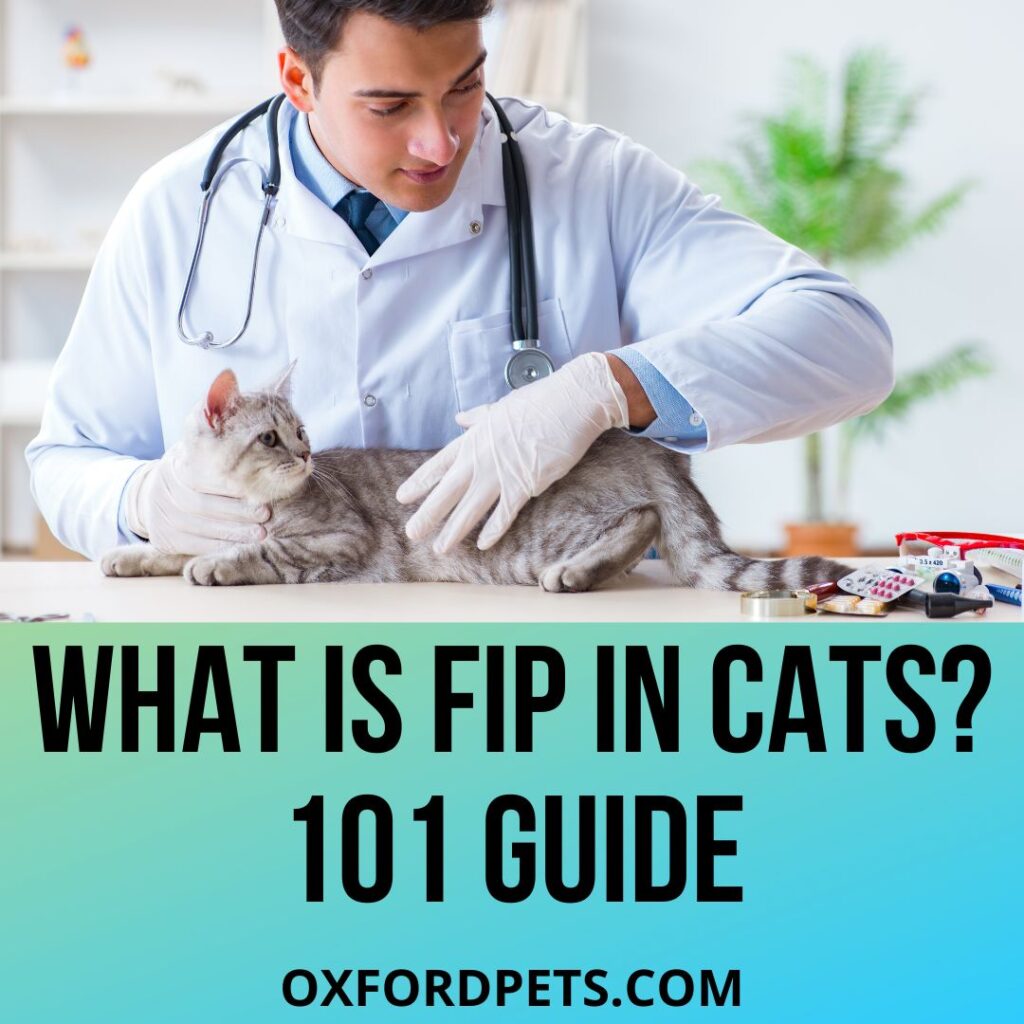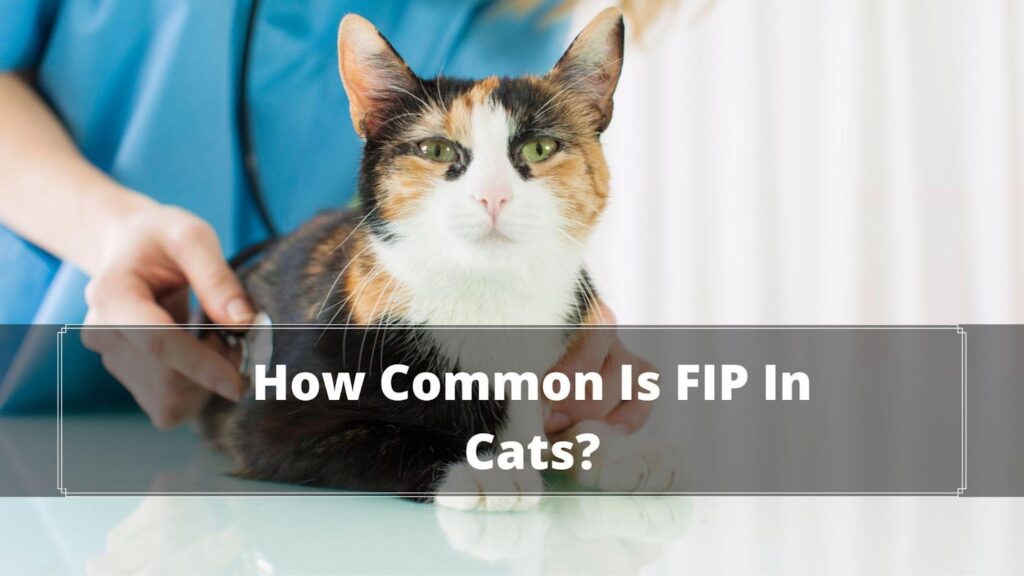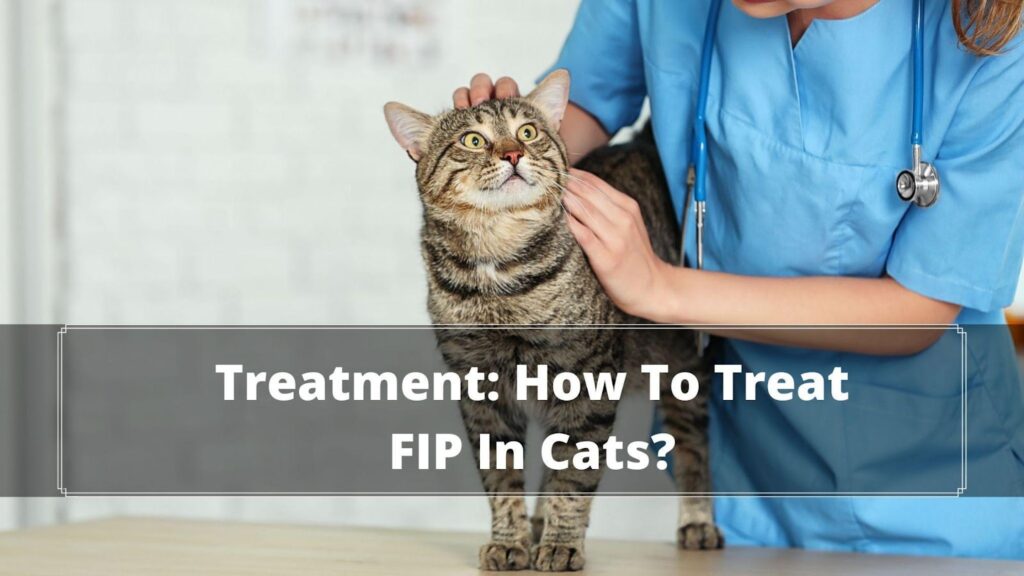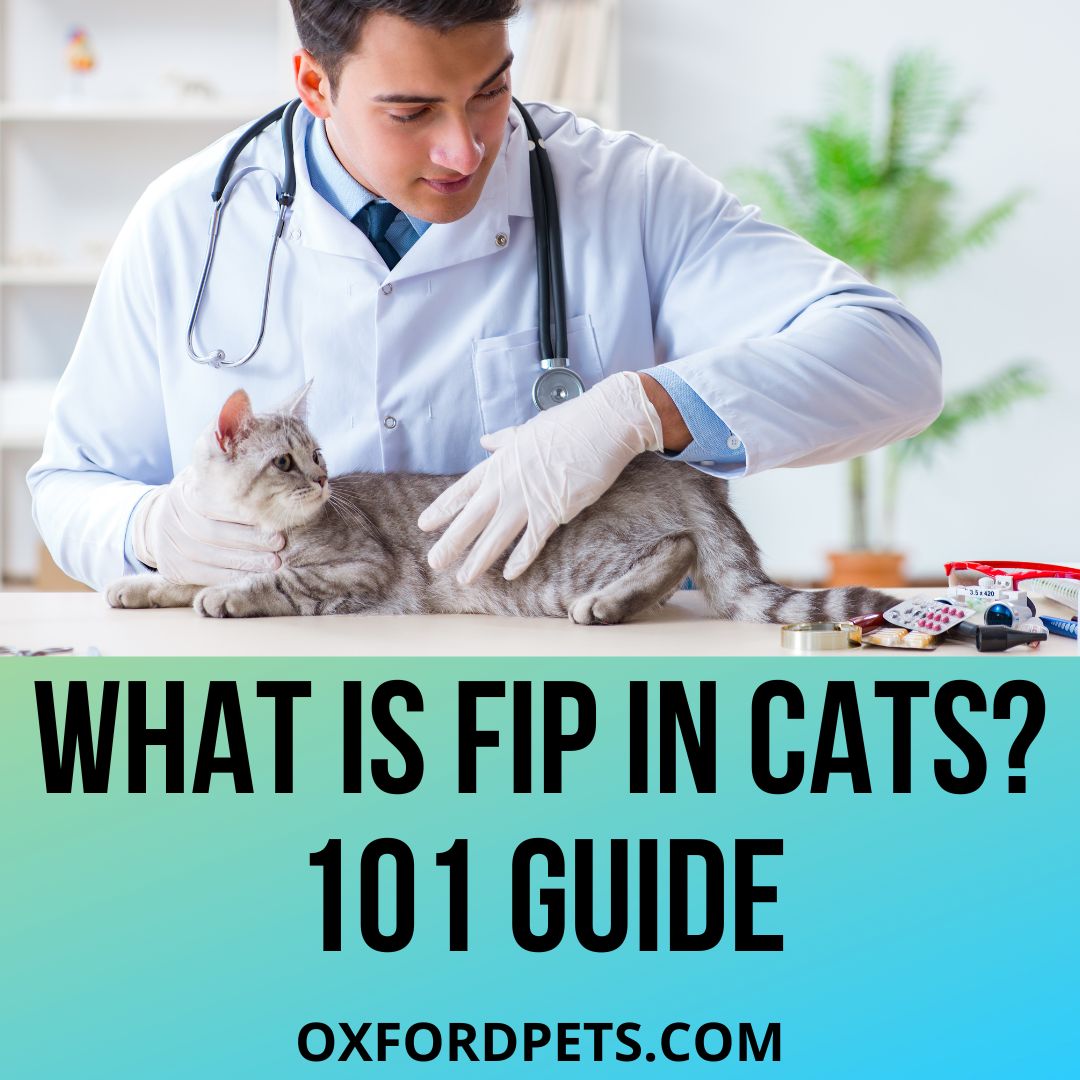What is FIP in cats? Is Fip Contagious To Other Felines? FIP is an acronym for feline immunodeficiency virus or FIV. This is a highly contagious disease caused by the infection of a virus known as the feline leukaemia virus. It is commonly called FCoV in academic literature.
Do you know that FIP was first recognized as a specific clinical entity on an event of meticulous necropsy record that pathologist Angell Memorial Animal Hospital kept? Today, many cat owners we generally speak with are very concerned about whether this coronavirus outbreak can affect their cats or not. From the 1960s onwards, there was a steady increase in the incidence of the FIP disease in cats.
Today, FIP is one of the most infectious diseases that cause thousands of death among kittens and young kitties from adoption Shelters and catteries. Being human, we tend to be our top priority for our family member safety. Therefore, being a responsible pet owner, the security of your cat should also be your family’s top priority. So, let’s talk about what FIP is in cats and whether FIP is contagious to other cats.
Contents
- Overview: What Are FIP Cats?
- How Common Is FIP In Cats?
- How Rare Is FIP In Cats?
- Is FIP Painful For Cats?
- Is FIP In Cats Curable?
- Test: How To Test For FIP In Cats?
- Cause: How Do Cats Get FIP?
- Treatment: How To Treat FIP In Cats?
- Alert: Can FIP Be Spread To Other Cats?
- Prevention: How To Prevent FIP In Cats?\
- FIP In Cats: FAQ
- Conclusion
Overview: What Are FIP Cats?
FIP is a prevalent disease in young cats, which causes mild diarrhea. Young cats are more prone to FIP compared to older ones. This virus is generally transmitted through fecal-oral transmission. Any form of FIP should be resolved without treatment if it is gentle. However, it may be deadly if it is a contagious type of FIP.
Therefore, let’s talk about what FIP is in cats and the types of cat FIP.
What Is FIP In Cats?
FIP, or feline infectious peritonitis, is a contagious coronavirus infection that causes severe cat diseases. It can severely affect young cats and is generally caused by a mutated form of SARS. It can be passed through faecal-oral transmission between infected and healthy cats.
Therefore, cats who have already been infected with FIP can also pass the disease to their housemates. Unfortunately, this is a very fatal and progressive condition that affects many cats at a young age. Cats suffering from FIP do not live long after diagnosis if it progresses.
Unfortunately and frustratingly, there is no effective vaccine available for Cats either. Therefore, the only treatment for FIP is preventing contact with unknown local or street cats. Prevention will be the best remedy & policy to protect your Furry cat from this contagious FIP disease. Let’s talk about the two common forms of FIP disease in cats.

What Is Wet FIP In Cats?
Cats suffering from abdominal distension or breathing difficulty are caused by effusive FIP, also known as wet FIP. In cats, if effusive or wet FIP progresses, it accumulates abnormal fluid in your cat’s abdomen and thorax. This can give cats a pot-bellied appearance.
What Is Dry FIP In Cats?
Non-effusive FIP or dry FIP is another form of Covid that causes Cellular infiltration on various organ surfaces of your felines. Non-effusive FIP usually affects your cat’s nervous system and eyes.
How Common Is FIP In Cats?

Unfortunately, FIP is a prevalent disease in cats that causes numerous death and conditions like eye issues, breathing difficulty, abdominal distension, and more. It is a saying that FIP results in widespread infiltration of your cat’s body organ with inflammatory tissue called granular.
This inflammation is the primary cause of cat infiltrated organ failure. Your cat may also suffer from a fever that can be unresponsive to antibiotics. If your cat suffers from a wet form of FIP, she will likely have thick yellow fluid. It can be hard to determine if your cat is suffering from a dry form of FIP. Dry FIP can lead to death over a week to months.
The most common symptom of FIP involves nervous system damage and deep inflammation in your cat’s eye. However, wet and dry FIP has a 100% mortality rate because new research and treatment have brought some hope to feline owners.
Is FIP Common In Cats?
Yes, FIP is common in cats, especially young cats and kittens. The effusive form of FIP, also known as wet FIP, is more common in cats’ brains without neurological clinical signs.
How Rare Is FIP In Cats?
After knowing how contagious FIP is, you might be looking to see if it is rare or not. Generally, the effusive form of FIP, also known as wet FIP, is more common than the dry FIP or non effusive form of FTP.
The effusive form of FIP has been diagnosed histopathologically in the cat’s brain without any signs of neurological clinical clinics. FIP becomes more common in cats that are kept in colonies or groups. If your cat lives in a multicat household, she will likely be exposed to FIP viruses.
A crowded environment around cats contributes to extreme stress. Thus, it can also be a factor in FIP disease development. Studies and research show that FIP compromises your cat’s immune system.
And genetics may also play a role in susceptibility to FIP disease, though it is rare. Plus, the FIP caused by genetic error seems to be more complex. Nowadays, single cats living in a household also developed FIP despite coming from a multicat environment. Therefore, let’s talk about whether or not FIP is rare in cats.
Is FIP Rare In Cats?
Yes, FIP is a rare condition and less common compared to wet FIP, also known as effusive FIP. FIP disease is rare in cats because it is always fatal and incurable. FIP has been found to affect less than 1% of all household pet cats.
Is FIP Painful For Cats?
You might be looking to know if FIP can be painful for your cat or not. Many owners have expressed their feelings about their cat suffering. Therefore, it is common to ask if your cat will be feeling any pain if suffering from FIP or not. Knowing whether FIP is incurable or invariably fatal and whether cats with FIP are in pain is a common question.
Are Cats With FIP In Pain?
No, Cats that have developed FIP never seem to be in pain. However, your cat is likely to be feeling just like humans when they suffer from the flu: feeling tired and wiped out. It would help if you also looked for signs like poor appetite, sudden weight loss, fever, and excessive tiredness in your felines.
Is FIP In Cats Curable?
Sadly, FIP in cats is incurable and can occur in cats of any age. It would help if you visited your veterinarian monthly for regular checkups and examinations. 80% of the cats suffering from FIP were under two years old.
Therefore, if you have adopted a new kitten, check it out at a nearby vet. There have been many cases of FIP in kittens around 6-12 months old.
Test: How To Test For FIP In Cats?
FIP can be very difficult to deal with. First, there is no easy test to detect FIP in cats. There are no specific clinical signs for diagnosing a cat’s FIP. a simple blood test will be unable for proper FIP diagnosis. Your veterinarian may check your cat’s antibodies for viruses in its blood sample.
But, this always offers minimal value. As cats develop antibodies against FIP, many healthy cats seem positive on the FIP test but should not be used for diagnosis. So, is there any test for FIP in cats that is 100% accurate?
Is There A Test For FIP In Cats?
Sadly, cats can only detect FIP if your feline is infected with an FECV. However, only demonstrating the presence of FeCV cannot provide a proper diagnosis of FIP in cats. Your veterinarian may also determine the presence of anti coronavirus antibodies in the cat’s blood sample to use as a diagnostic tool.
The antibodies in CSF will help the veteran to learn if the cat has ever been exposed to a coronavirus or not. Therefore the presence of anti-corona antibodies in your cat should be interpreted cautiously.
Therefore clinical signs, signalment, medical history, and other diagnostic test results should be considered to diagnose FIP in cats. A few different tests can help detect FIP in cats which include.
- Analysis of proteins in the blood
- MRI scans of the brain
- Evaluation of a cerebrospinal fluid sample
- Evaluation of eye’s fluid
- lesions samples of organs and lymph nodes
- Biopsies (tissue samples)
Cause: How Do Cats Get FIP?
So, learning how cats get FIP will help you find out the available treatment or diagnosis and understand the factors that lead to such a severe disease development. Therefore, below is the cause of FIP in cats.
What Causes FIP In Cats?
FIP is a very contagious viral infection or disease caused by young cats. Strains of viruses, also known as coronavirus, tend to be the primary cause of FTP in cats. The feline coronavirus theme responsible for FIP is generally found in your cat’s gastrointestinal tract.
Can Cats Survive FIP?
Cats suffering from mild FIP usually survive on their own. Mild wet FIP can be passed through fecal-oral transmission, which causes a mild disease that resolves without treatment. However, if your cat is suffering from one or both forms of FIP, it can lead to death if it progresses.
Treatment: How To Treat FIP In Cats?

The proper treatment of FIP in cats is still a challenge in current clinical practices because there is no adequate medical treatment for vaccination available. Therefore, this article aims to help you learn different aspects of FIP infection and possible treatment & diagnosis. Thus, this includes signalment, Diagnostic AIDS, clinical presentation, and epidemiology.
Is There A Cure For FIP In Cats?
Surprisingly and unfortunately, there is no cure for FIP in cats. Plus, no legally approved treatment or medicine is available worldwide for Cats diagnosed with FIP. Medication or therapy for FIP includes supportive care like blood transfusions & drainage of build-up fluid in your cat’s abdomen or chest.
Some countries like Australia or the United Kingdom have legally approved antiviral drugs available over the counter for treating FIP in cats, but those are not very 100% effective.
However, you don’t need to be sad because many institutes and veterinary research are being carried out in groups on different approaches to treat the FIP disease in cats. For now, you can do multiple things to relieve your cat with pain and make them feel comfortable with supportive care.
You should work with your veterinarian and find out what kind of supportive care you should give your cat for its well-being and comfortness. Some antiviral drugs are introduced in the United States market to help relieve FIP in cats. But these are yet to be approved by the FDA “food and drug administration.”
Because the long-term effectiveness of this drug in treating FIP is unknown till now, other research is needed to be carried out. I recommend you consult your veterinarian and then decide what kind of treatment would suit you and your cat. This kind of treatment may also cost you a lot.
Can Cats Be Vaccinated Against FIP?
Unfortunately, there is no vaccine available for FIP in cats. Therefore, cats can never be vaccinated against FIP as of now. However, many veterinary research groups are working on developing vaccines and cures for FIP disease.
How To Cure FIP In Cats?
There has been significant development in research and approaches to treat the FIP disease and manage this fatal condition. New antiviral drugs like gs441521 and GS5734 have been found to be very effective in treating some emerging viruses in humans and cats.
Plus, the gs441521 is also legally available all over Australia and UK but not in the US. Qs this drug has only been proven to treat human viral infections like SARS covid, the long-term effect on pets are yet to be studied. The treatment of a FIP will always remain expensive and to be carried out over a long period of more than 84 days.
Therefore, you should consult with your veterinarian properly because your veteran also needs to be mindful of the cost and commitment involved in treating a FIP. The veterinarian will be aware of potential relapse also.
There is nothing to be sad about because many institutes and Groups are looking forward to learning more about the treatment of FIP over the next few years.
You should never get a FIP drug or antiviral drug from the black market because you don’t know the content and the safety of using it. Legal drugs are recommended for the treatment of FIP in cats only.
Alert: Can FIP Be Spread To Other Cats?
Yes, FIP can be spread to other cats also through fecal-oral transmission. However, it is not as contagious in other cats. FIP is a prevalent and infectious disease that often gets resolved independently. You might be worried about its transmission. If you have a multicat household, it is common to ask how FIP is transmitted Between Cats.
How Is FIP Transmitted Between Cats?
FIP is usually transmitted through fecal-oral transmission between cats. The feline covid strains in your cat’s intestinal tract cells are typically shed in its feces. Therefore, other cats are likely to be infected with FIP only if they ingest it.
However, the mutant that causes the FTP disease is not very contagious to other cats. Since the exact cause of virus mutation is unknown, you should take precautions and quarantine your affected cat.
This is because once the virus mutates, it stops shedding in your cat’s feces. FIP usually lives and replicates inside your cat’s white blood cell instead of the intestine.
Is FIP Contagious To Other Cats?
No, FIP is not contagious because of the mutant feline infectious peritonitis virus, which generally causes mild diseases only. However, some cats suffer from both forms of FIP, wet and dry, leading to death. But, this is rare.
Prevention: How To Prevent FIP In Cats?\
As of now, there is no commercial vaccine available in your country to relieve or help your cat against FIP. Therefore, you must visit a veterinarian for proper treatment, support, and prevention tips. Some vaccines might be affected and can only be given to kittens over 16 weeks old. Plus, no vaccine offers value against FIP. Below are seven tips to prevent FIP in cats.
- Suppose you have two cats then and at least one litter box for each. Ensure you keep it in an easy-to-access, clean, and disinfected area.
- Avoid keeping your cat under stress.
- Take all preventive Healthcare measures for all your cats, including occasional visits to your veterinarian.
- Avoid keeping your cats in big and small isolated groups, with no more than four cats in each group. It reduces the risk of endemic FIP infection.
- Never have kittens from multiple litters in a confined area.
- Make sure you keep the litter box separated and away from your cat’s water bowl, food dishes, and play area.
- Please clean and disinfect all your cat’s accessories, including their toy, at least twice or thrice a week.
Is There A Vaccine Against FIP In Cats?
Currently, there is no commercially legally approved vaccine for Cats against cats. However, if it is a classical disease, the mortality rate is almost a hundred per cent. Even if you find a commercially available vaccine, it will have less than a hundred percent effectiveness. Avoid purchasing a legal drug or vaccine from a black market.
FIP In Cats: FAQ
Are Cats Born With FIP?
No, cats can never be born with FIP. However, if their parents had any form of FIP, the offspring will carry traces or some covid strains on their genes, but they are likely to be more immune. Although FTP can occur in young cats of any age, it is not a congenital disability or genetic disease.
Can Cats Live With FIP?
Yes, but if your cat is suffering from a common form of FIR, like wet or effusive FIP, it may survive for a few months. The dry form of FIR is equally deadly. However, In most cases, mild or seasonal FIP resolves on its own without treatment or medicinal help.
Can Humans Get FIP From Cats?
Currently, there is no proof of FIP transmission from cats to humans. However, cat feces have toxoplasma that can infect people, but it is rare. You will likely be infected by eating anything that an infected cat licks or touches.
- Daily L-Lysine Supplement - Viralys Lysine for cats helps support a strong immune system and can help support eye and respiratory health in cats and kittens of all ages
- Supports Feline Health Issues - Vetoquinol Lysine for Cats can help manage common feline health issues and provides support to help a cat's immune system, ocular health, and respiratory health
- L-Lysine for Cats - Viralys L-Lysine for cats and kittens provides specially formulated immune support for as long as needed to help manage conditions responsive to lysine
- Vet Recommended - Trusted by veterinarians, Viralys L-Lysine Gel provides a safe and reliable solution for supporting your cat's immune and respiratory systems.
- 500mg of Lysine - Viralys Gel delivers the veterinarian-recommended amount of lysine for cats at 500mg 2x daily, and kittens at 250mg
- Number 1 veterinarian-recommended cat probiotic brand to support digestive health (Kantar Veterinary Tracker, 2021), making it an excellent cat supplement
- Purina Pro Plan Sensitive stomach cat food supplement for the dietary management of kittens and adult cats with cat diarrhea
- Digestive Care Cat Food supplement containing probiotics proven to promote intestinal health and balance
- FortiFlora cat vitamins and supplements have antioxidants to support a robust immune system and contain antioxidants for cats
- Easy-to-feed probiotic powder
- CAT SINUS RELIEF: Nose Relief sinus supplement may help support certain nasal and sinus tract issues in cats and may help relieve runny nose, watery eyes, sneezing, and congestion.
- NATURAL FORMULA: This homeopathic nose relief for cats may also help support healthy sinus function. It is formulated with safe, gentle, and natural homeopathic ingredients and has no known side effects.
- FOR CATS OF ALL AGES: HomeoPet’s liquid sinus support supplement is well tolerated by and approved for cats of all ages, from kittens to senior cats.
- EASY TO USE: Dose product directly into mouth, in water, or at meal/snack time 3 times per day as needed. For acute cases, give 1 dose every 15 minutes for up to 4 doses.
- SIMPLE, SAFE & PURE: Daniel H. Farrington and his veterinarian brother, Thomas Farrington, created HomeoPet to bring high-quality, safe, and natural supplements to pets and pet parents worldwide.
- STIMULATES APPETITE - When your cat isn't getting proper nutrition due to reasons such as illness or medical procedures, this nutritional supplement gel will help restore your kitty's appetite to keep them healthy and strong
- HELPS CAT GAIN WEIGHT - Filled with healthy ingredients to help your cat gain weight if they aren't eating properly
- ENERGY BOOSTER - Vitamins, minerals, carbohydrates, and omega fatty acids are essential nutrients to boost your cats weight, appetite and energy
- THE BEST FOR YOUR CAT - Ready Cal for Cats is veterinary-formulated with tasty flavor cats love to promote weight gain; Proudly manufactured in the USA without artificial flavors or dies
- Daily L-Lysine Supplement - Viralys Lysine for cats helps support a strong immune system and can help support eye and respiratory health in cats and kittens of all ages
- Supports Feline Health Issues - Vetoquinol Lysine for Cats can help manage common feline health issues and provides support to help a cat's immune system, ocular health, and respiratory health
- L-Lysine for Cats - Viralys L-Lysine for cats and kittens provides specially formulated immune support for as long as needed to help manage conditions responsive to lysine
- Vet Recommended - Trusted by veterinarians, Viralys L-Lysine Powder provides a safe and reliable solution for supporting your cat's immune and respiratory systems.
- 500mg of Lysine - Viralys Powder delivers the veterinarian-recommended amount of lysine for cats at 500mg 2x daily, and kittens at 250mg
Conclusion
I recommend preventing your kittens and cats from contacting FIP because it is tough to treat the condition. It has no cure or treatment available. The unavailability of drugs, vaccines, and medicine against FIP makes FIP more contagious in Pet cats.
Cats living in stressful conditions like multi multicat households or shelters are more prone to FIP development. Therefore, it is important to always visit your veterinarian with your cat for periodic testing and regular checkups.
Try to minimize exposure to infectious diseases by keeping your cat up to date on vaccination. Always clean your cat’s litter box and place it away from their food and water dishes.
I have tried my best to give you all the information about what FIP is in cats, whether FIP is contagious to other cats, are cats with FIP in pain, how to test for FIP in cats and what are the available treatments. If you like this article, then consider sharing it. Always remember sharing is caring; your one share can save one or more people’s felines. See you in one of our other articles on cat care; till then, take care and goodbye.





